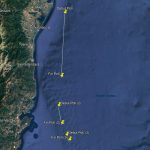← Back
EFFECTOR EU H2020 Project: The power of data to boost maritime surveillance

Under the Horizon 2020 programme and with a lifecycle of eighteen months, EFFECTOR was launched in October 2020, and brings together several European coastal countries or neighboring European waters: Greece, Portugal, Bulgaria, Montenegro, France, Italy.

The ultimate objective, early 2022, will be the implementation of a maritime surveillance demonstrator. Pollution, illegal fishing, illegal trafficking, and clandestine immigration are the themes addressed.
CLS data technical expert in support to Naval Group
CLS is proud to participate to the project for delivering satellite data in close collaboration with Naval Group. CLS’s expertise in maritime surveillance allowed us to be selected as Naval Group’s technical support in EFFECTOR for the supply of the most suitable data.
EFFECTOR: An End to end interoperability Framework For maritimE situational awareness at strategiC and tacTical OpeRations
By implementing an interoperability framework and associated data fusion and analytics services for maritime surveillance and border security, the project will foster collaboration between maritime stakeholders. Therefore, faster detection of new events and better-informed decision making will be possible. Moreover, the joint understanding and undertaking of a situation across borders will allow the seamless cooperation between operating authorities and on-site intervention forces, ensuring that all existing privacy and data protection rules are fully respected. The project aims to test its solution in France, Portugal and Greece.
 This project has received funding from the European Union’s Horizon 2020 research and innovation programme under grant agreement No. 883374. This webpage reflects only the author’s view and the Research Executive Agency (REA) and European Commission cannot be held responsible for any use that may be made of the information it contains.
This project has received funding from the European Union’s Horizon 2020 research and innovation programme under grant agreement No. 883374. This webpage reflects only the author’s view and the Research Executive Agency (REA) and European Commission cannot be held responsible for any use that may be made of the information it contains.




